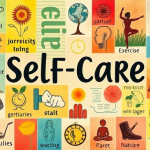
Overcoming Burnout: 5 Effective Ways to Reignite Your Energy
Identifying the Signs of Burnout

Burnout can manifest in various ways, both physically and emotionally. One common sign is feeling constantly exhausted, even after a full night’s sleep. You may find yourself lacking energy and struggling to concentrate on tasks that were once manageable. Additionally, you might experience a sense of detachment or cynicism towards your work, feeling disillusioned and unfulfilled by your daily responsibilities.
Another key indicator of burnout is an increase in irritability and frustration. Small inconveniences that typically wouldn’t bother you may suddenly feel overwhelming, leading to mood swings and heightened sensitivity. Moreover, prolonged feelings of stress and anxiety that interfere with your ability to relax or unwind could be a red flag for burnout. If you notice these signs in yourself or a loved one, it is essential to address them promptly to prevent further escalation of burnout symptoms.
Understanding the Causes of Burnout
Burnout doesn’t develop overnight; it is often a slow culmination of various factors that gradually wear a person down. One significant cause of burnout is an overwhelming workload that exceeds a person’s capacity to manage effectively. When individuals consistently face an unmanageable workload without the necessary support or resources, they are more likely to experience burnout. Additionally, a lack of recognition or appreciation for one’s efforts can contribute to feelings of being undervalued, which can further fuel burnout.
In addition to workload and lack of recognition, poor work-life balance is another common cause of burnout. When individuals are unable to disconnect from work and constantly feel pressured to be available or engaged, it can lead to chronic stress and exhaustion. This constant blurring of boundaries between work and personal life can make it challenging to replenish energy and recharge, ultimately contributing to burnout.
Setting Realistic Expectations
Setting realistic expectations is crucial in managing stress and preventing burnout. It’s important to acknowledge your limitations and not take on more than you can handle. By setting achievable goals and timelines, you can ensure that you are not setting yourself up for failure or overwhelming yourself with unrealistic demands.
Additionally, it’s helpful to communicate openly with colleagues and supervisors about what can realistically be accomplished within a given timeframe. By being transparent about your workload and capabilities, you can set boundaries and avoid taking on tasks that are beyond your capacity. Remember that it is okay to say no and prioritize tasks based on their importance and urgency.
Prioritizing Self-Care
Self-care is crucial for maintaining overall well-being and preventing burnout. It involves taking intentional action to meet your physical, emotional, and mental needs. Prioritizing self-care means recognizing the importance of looking after yourself so that you can continue to thrive in all areas of your life.
Engaging in activities that bring you joy and relaxation, such as reading a book, taking a walk in nature, or practicing a hobby, can help recharge your mind and body. Additionally, setting aside time for adequate rest and relaxation is essential for replenishing your energy levels and reducing stress. Making self-care a non-negotiable part of your routine can significantly enhance your resilience and ability to cope with the demands of daily life.
Establishing Boundaries

Establishing boundaries is crucial in maintaining a healthy work-life balance. By clearly defining what is acceptable and what is not in terms of your time, energy, and resources, you can prevent others from overstepping their bounds and taking advantage of your willingness to help. Setting boundaries also ensures that you have the space and freedom to focus on your priorities without being constantly pulled in different directions.
In a professional setting, boundaries can help you maintain professionalism and avoid becoming too emotionally invested in your work. By setting limits on when and how you are available to colleagues or clients, you can protect your own well-being and prevent burnout. Additionally, establishing boundaries in personal relationships can help you communicate your needs and expectations clearly, fostering healthier connections and reducing the risk of resentment or conflict.
Practicing Mindfulness and Meditation
Engaging in mindfulness and meditation practices can provide valuable tools for managing stress and promoting overall well-being. Mindfulness encourages individuals to focus on the present moment without judgment, cultivating a sense of awareness and acceptance. By incorporating mindfulness into daily routines, individuals can enhance their ability to cope with challenging situations and navigate stress more effectively.
Meditation offers a practice of stillness and reflection, allowing individuals to quiet the mind and create a sense of calm. Setting aside time for meditation can help reduce anxiety, improve concentration, and promote emotional resilience. Whether through guided meditation sessions or personal practice, incorporating meditation into daily life can support mental clarity and emotional stability.
Engaging in Physical Exercise
Physical exercise is a crucial component in combating burnout. Engaging in regular exercise not only benefits the body but also the mind. Physical activity releases endorphins, which are natural mood boosters, helping to reduce stress and increase overall well-being. Whether it’s going for a run, practicing yoga, or hitting the gym, finding a form of exercise that suits your preferences can be an effective way to manage the symptoms of burnout.
Incorporating physical exercise into your routine doesn’t have to be time-consuming or strenuous. Even just a short walk during a break at work or a quick at-home workout can make a significant difference in your mental and emotional health. Making exercise a priority and scheduling it into your day can help create a sense of routine and consistency, allowing you to reap the benefits of regular physical activity in combating burnout.
Seeking Support from Loved Ones
It is essential to lean on your loved ones during times of struggle and stress. Seeking support from family and friends can provide a sense of comfort and encouragement in difficult moments. By sharing your feelings and experiences with trusted individuals, you create an outlet to express yourself openly and receive validation for your emotions.
Involving loved ones in your journey toward well-being can foster a sense of connection and strengthen your relationships. Whether it be through a heartfelt conversation, a listening ear, or a simple gesture of support, the presence of those closest to you can offer solace and remind you that you are not alone in facing challenges. Embracing the support of loved ones can serve as a source of resilience and fortitude as you navigate through the ebbs and flows of life.
Taking Regular Breaks

To maintain optimal productivity and prevent burnout, it is essential to incorporate regular breaks into your daily routine. Stepping away from your work periodically allows your mind to recharge and refocus, leading to improved concentration and overall performance. Research has shown that taking short breaks throughout the day can enhance creativity and problem-solving skills, ultimately enhancing your ability to tackle tasks more efficiently.
When scheduling your breaks, consider integrating short intervals of physical activity such as stretching or a brisk walk. Movement not only helps alleviate physical tension but also stimulates blood flow to the brain, promoting mental clarity and rejuvenation. Additionally, taking breaks to engage in activities that you enjoy, such as listening to music or chatting with a colleague, can further contribute to reducing stress and enhancing your overall well-being. By prioritizing regular breaks, you can sustain your energy levels and enhance your productivity in the long run.
Setting Achievable Goals
Setting achievable goals is vital in combating burnout. When setting goals, it is crucial to break them down into smaller, more manageable tasks. This approach helps in maintaining motivation and a sense of accomplishment as each task is completed. By setting realistic and achievable goals, individuals can prevent feeling overwhelmed and reduce the likelihood of experiencing burnout.
Moreover, setting achievable goals allows individuals to track progress effectively. Having clear, specific goals in place provides a roadmap for success and enables individuals to stay focused on what needs to be accomplished. Celebrating small victories along the way can boost morale and provide the motivation needed to continue working towards larger goals.
Learning to Delegate Tasks
Delegating tasks is a crucial skill that can help alleviate feelings of overwhelm and prevent burnout. It involves entrusting responsibilities to others who are capable of carrying them out effectively. By delegating, individuals can free up their time and mental energy to focus on higher-priority tasks that require their expertise and attention.
When delegating tasks, it’s essential to clearly communicate expectations, deadlines, and any specific instructions to the person taking on the responsibility. Providing support and guidance where needed can also ensure that the task is completed successfully. Additionally, trusting the individual to complete the task without micromanaging allows for a sense of autonomy and empowerment, benefiting both parties involved. By mastering the art of delegation, individuals can better manage their workload and maintain a healthy work-life balance.
Creating a Positive Work Environment
Fostering a positive work environment is essential for promoting productivity and well-being among employees. When employees feel supported, valued, and respected in the workplace, they are more likely to thrive professionally and personally. Employers can cultivate a positive work environment by encouraging open communication, recognizing achievements, and fostering a sense of community among team members.
Creating a culture of inclusivity and collaboration can help employees feel a sense of belonging and motivation to perform their best. By promoting transparency, providing opportunities for growth and development, and prioritizing the mental and emotional well-being of employees, organizations can lay a strong foundation for a positive work environment that benefits both individuals and the company as a whole.
• Encourage open communication among employees to foster a sense of trust and transparency
• Recognize and reward achievements to show appreciation for hard work and dedication
• Foster a sense of community by organizing team-building activities and promoting collaboration
• Create a culture of inclusivity by valuing diversity and treating all employees with respect
• Provide opportunities for growth and development to help employees reach their full potential
• Prioritize mental and emotional well-being by offering resources such as counseling services or wellness programs
Finding Joy in Hobbies and Interests

Engaging in hobbies and interests can be a powerful way to counteract the effects of burnout. Whether it’s painting, gardening, playing a musical instrument, or simply reading a good book, immersing oneself in activities that bring joy and fulfillment can provide a much-needed break from the stresses of everyday life. By making time for these activities, individuals can recharge their mental and emotional batteries, leading to increased productivity and a renewed sense of purpose.
Incorporating hobbies and interests into a daily routine not only serves as a form of self-care but also helps in maintaining a healthy work-life balance. Taking a step back from work-related responsibilities and indulging in activities that bring pleasure can boost creativity, reduce feelings of overwhelm, and foster a sense of well-being. Finding joy in hobbies and interests can serve as a reminder that life is more than just work and deadlines, allowing individuals to reconnect with themselves and their passions outside of the professional sphere.
Limiting Screen Time
Excessive screen time has become a common issue in today’s digital world, leading to various negative impacts on our well-being. The constant exposure to screens, whether from smartphones, computers, or televisions, can contribute to eye strain, disrupted sleep patterns, and increased feelings of anxiety and overwhelm. It is essential to be mindful of the amount of time spent in front of screens and to actively make efforts to limit screen usage for our overall health and mental clarity.
Setting boundaries around screen time can help in creating a healthier balance in our lives. This can involve implementing daily time limits for recreational screen use, establishing screen-free zones in the house, and finding alternative activities that don’t involve electronic devices. By being conscious of our screen habits and making intentional choices to reduce screen time, we can experience improved focus, better quality of sleep, and enhanced overall well-being.
Getting Sufficient Sleep
Getting sufficient sleep is crucial for overall well-being and productivity. Lack of sleep can lead to increased stress levels, decreased cognitive function, and a weakened immune system. It is recommended that adults aim for 7-9 hours of quality sleep each night to allow the body and mind to rest and recharge adequately. To promote better sleep, establish a consistent sleep routine by going to bed and waking up at the same time every day, even on weekends. Creating a comfortable sleep environment by keeping the room dark, quiet, and cool can further enhance the quality of your rest.
Quality sleep plays a vital role in managing stress and maintaining emotional balance. When you consistently get enough rest, your body is better equipped to cope with daily challenges, regulate emotions, and make sound decisions. Prioritize sleep as a non-negotiable part of your self-care routine, and you will likely experience improved concentration, memory, and mood throughout the day. Remember, quality sleep is an investment in your overall health and well-being, so make it a priority as you strive to achieve a balanced and fulfilling lifestyle.
Eating a Balanced Diet
A balanced diet plays a crucial role in maintaining overall health and well-being. It provides essential nutrients that support bodily functions and help in combating stress and fatigue. Consuming a variety of foods from different food groups ensures that the body receives the necessary vitamins, minerals, and macronutrients to function optimally. Incorporating a mix of fruits, vegetables, whole grains, lean proteins, and healthy fats into your meals can contribute to better energy levels and improved mental clarity.
Moreover, a balanced diet can positively impact mood and emotional well-being. Nutrient-rich foods, such as leafy greens, nuts, and berries, contain antioxidants and phytochemicals that can help reduce inflammation and promote brain health. By fueling your body with wholesome foods, you can enhance cognitive function and boost your resilience against the negative effects of stress. Making conscious choices about what you eat can lead to increased productivity, better concentration, and a more positive outlook on life.
Avoiding Multitasking

Multitasking, often viewed as a skill that boosts efficiency and productivity, can actually lead to decreased focus and quality of work. When juggling multiple tasks simultaneously, individuals may experience mental fatigue and reduced cognitive performance. The brain is not designed to effectively process numerous tasks at once, resulting in increased errors and a higher likelihood of feeling overwhelmed.
To avoid the pitfalls of multitasking, it is imperative to prioritize focusing on one task at a time. By dedicating full attention to a specific task, individuals can complete it more efficiently and effectively. This approach allows for better concentration, improved problem-solving abilities, and a higher quality of work output. Embracing a more focused and deliberate work style can lead to increased productivity and a greater sense of accomplishment.
Managing Stress Levels
To effectively manage stress levels, it is crucial to identify triggers that contribute to feelings of overwhelm and anxiety. By acknowledging these stressors, individuals can take proactive steps to address them and minimize their impact on their mental well-being. This may involve implementing strategies such as time management techniques, prioritizing tasks, and learning to say no to additional responsibilities when feeling overwhelmed.
In addition, practicing relaxation techniques like deep breathing exercises, progressive muscle relaxation, or guided imagery can help reduce feelings of stress and tension in the body. Taking regular breaks throughout the day to engage in these practices can promote a sense of calm and centeredness, allowing individuals to better cope with daily pressures and demands. Incorporating these stress-reducing activities into one’s routine can foster a more balanced and harmonious approach to managing stress in both professional and personal spheres.
Celebrating Small Wins
Acknowledge your victories, no matter how insignificant they may seem. Completing a task ahead of schedule, successfully resolving a challenging issue at work, or even just maintaining a positive attitude during a stressful day are all accomplishments worth recognizing. Celebrating these small wins can boost your morale and motivation, reinforcing your belief in your abilities and fueling your drive to tackle larger goals.
Taking time to appreciate and acknowledge your achievements, irrespective of their size, is crucial for maintaining a positive mindset and cultivating a sense of accomplishment. By celebrating small wins, you are reinforcing a positive feedback loop that can contribute to your overall well-being and resilience. Remember, progress is not always measured by significant milestones but by the accumulation of these small successes along the way.
Reflecting on Achievements and Progress
Reflecting on achievements and progress is a crucial practice that can help individuals maintain a positive outlook and stay motivated. Taking the time to acknowledge and celebrate the milestones, no matter how small, can significantly boost morale and reinforce a sense of accomplishment. This self-reflection allows individuals to recognize their growth and development, which can provide a much-needed sense of validation and encouragement to keep moving forward.
Furthermore, reflecting on achievements and progress can serve as a reminder of one’s capabilities and strengths during challenging times. By looking back on past successes, individuals can draw inspiration and confidence to tackle new obstacles with resilience and determination. This practice also fosters a sense of gratitude and satisfaction, fostering a positive mindset that can help individuals navigate through difficulties more effectively.











